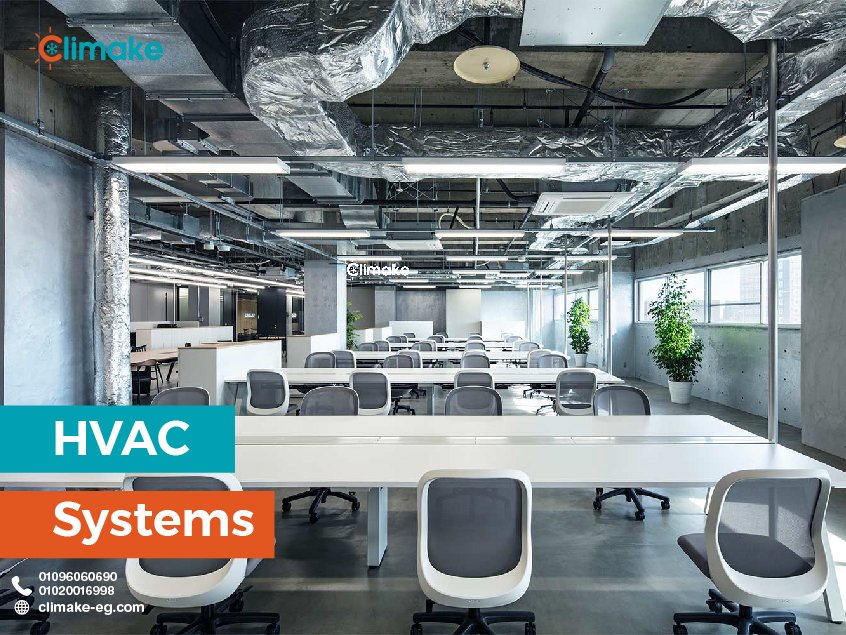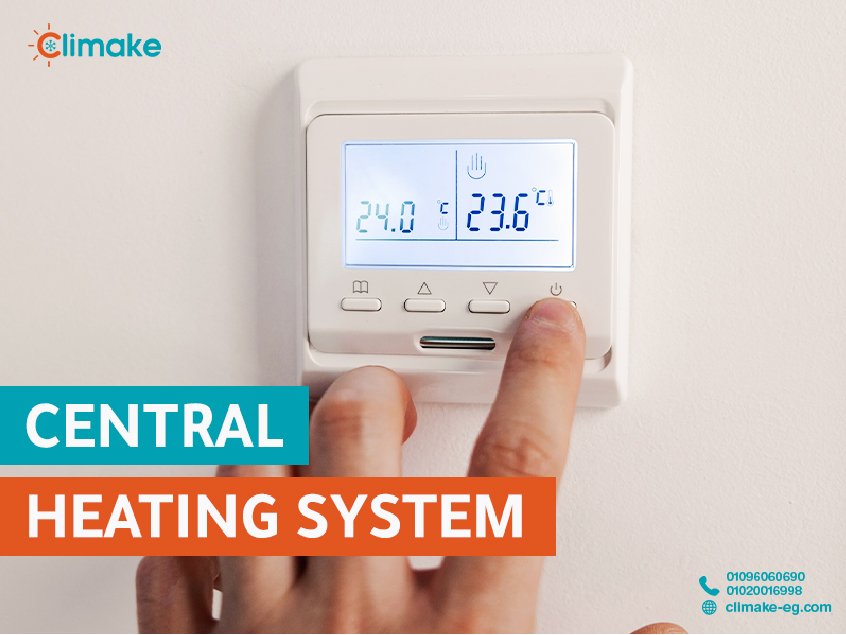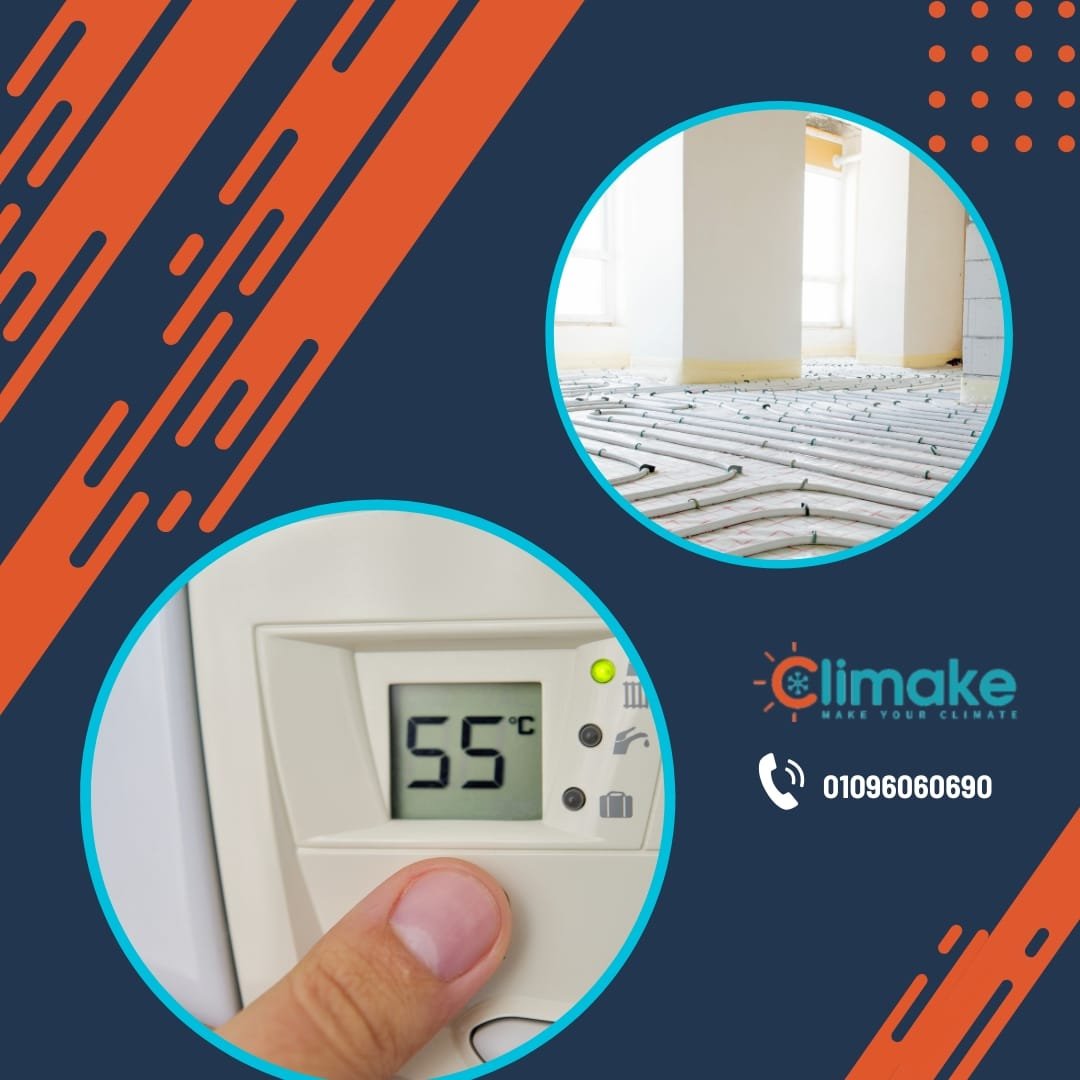Central heating systems are the backbone of modern comfort, providing consistent warmth to homes and businesses. This guide will take you through everything you need to know about central heating, including its benefits, types, maintenance tips, and energy-saving strategies. Whether you’re upgrading your current system or considering a new installation, this guide will help you make informed decisions. Central heating is a system designed to provide warmth to an entire building or home from a single heat source. Unlike localized heating methods such as space heaters, central heating distributes heat evenly across multiple rooms, ensuring a comfortable and consistent temperature throughout.
What is Central Heating?
Central heating is a system that generates heat in one central location and distributes it throughout a building via ducts, pipes, or radiators. Unlike standalone heaters or fireplaces that heat specific areas, central heating ensures uniform warmth across all rooms.
At the core of a central heating system is typically a furnace or boiler that uses natural gas, oil, propane, or electricity to produce heat. The generated heat is then transferred to air, water, or steam and circulated throughout the building, maintaining a comfortable temperature.
How Central Heating Works
The central heating system typically uses a boiler or furnace to generate heat. This heat is then distributed through a network of pipes, ducts, or radiators to warm the air or water in different parts of the house. The system operates via a thermostat, allowing you to control the temperature to suit your needs.
Common Components of Central Heating Systems
- Boiler/Furnace: The main heat source.
- Pipes/Ducts: Transport the heat throughout the home.
- Radiators: Emit heat into individual rooms.
- Thermostat: Controls the temperature.
Importance of Central Heating in Modern Homes
Central heating systems are essential for maintaining a comfortable indoor environment, especially during colder months. They ensure energy efficiency, reduce heating costs, and improve air quality when properly maintained.
Types of Central Heating Systems
Gas Central Heating
Gas central heating is one of the most popular systems, relying on natural gas to generate heat.
- How It Works: A boiler burns natural gas to heat water, which is then circulated through pipes to radiators or underfloor heating systems.
- Pros: Cost-effective, widely available, and quick to heat.
- Cons: Requires a gas supply and regular maintenance.
Electric Central Heating
Electric central heating uses electricity to generate heat, making it a suitable option for homes without a gas supply.
- How It Works: Electric heaters or boilers heat water or air, which is then distributed throughout the house.
- Pros: Easy to install, low maintenance, and eco-friendly if powered by renewable energy.
- Cons: Higher running costs compared to gas.
Oil-Fired Central Heating
Oil-fired systems are common in rural areas where gas is unavailable.
- How It Works: Oil is burned to heat water, which is then circulated to radiators or underfloor systems.
- Pros: Reliable and efficient.
- Cons: Requires an oil storage tank and regular refueling.
Renewable Energy Central Heating
For eco-conscious homeowners, renewable energy systems like solar-powered heating and heat pumps are excellent alternatives.
- Solar-Powered Systems: Use solar panels to heat water.
- Heat Pumps: Extract heat from the air, ground, or water to warm your home.
Benefits of Central Heating
1. Consistent Comfort
Central heating ensures a steady temperature throughout your home, eliminating cold spots and maintaining a cozy environment in every room.
2. Energy Efficiency
Modern systems are designed to optimize energy usage, reducing waste and lowering utility bills. Centralized heating also minimizes heat loss compared to localized systems.
3. Improved Air Quality
Central heating systems often include air filtration components that remove dust, allergens, and pollutants from the air, promoting a healthier indoor environment.
4. Convenience
You can control the entire system from a single thermostat, allowing you to easily adjust the temperature to suit your needs.
5. Enhanced Property Value
Homes with central heating systems are more appealing to buyers, often commanding higher resale values.
6. Safety
Unlike open flames or space heaters, central heating eliminates many fire hazards, making it a safer option for heating your home.
7. Customizable Zoning
Some systems allow you to divide your home into heating zones, giving you control over the temperature in specific areas and improving energy efficiency.
Types of Central Heating Systems
1. Forced Air Systems
- How It Works: A furnace is used to heat air, which is distributed through ducts and vents.
- Fuel Sources: Natural gas, propane, or electricity.
- Pros: Quick heating and compatible with air conditioning systems.
- Cons: Requires ductwork and can spread allergens if not maintained.
2. Hydronic (Hot Water) Systems
- How It Works: A boiler heats water, which circulates through pipes to radiators or underfloor systems.
- Pros: Even heat distribution and energy efficiency.
- Cons: Higher upfront costs and slower heating times.
3. Steam Heating Systems
- How It Works: Steam is generated in a boiler and sent to radiators.
- Pros: Effective in older homes with existing infrastructure.
- Cons: Less common and can require more maintenance.
4. Heat Pump Systems
- How It Works: Extracts heat from the air or ground and transfers it indoors.
- Pros: Energy-efficient and provides both heating and cooling.
- Cons: Performance can drop in extremely cold climates.
5. Geothermal Systems
- How It Works: Utilizes underground heat through a series of buried pipes.
- Pros: Highly efficient and environmentally friendly.
- Cons: High installation costs.
6. Dual-Fuel Systems
- How It Works: Combines a heat pump with a furnace for optimal performance.
- Pros: Energy-efficient and versatile.
- Cons: Complex setup and higher initial investment.
7. Solar Heating Systems
- How It Works: Solar collectors absorb sunlight to heat water or air.
- Pros: Eco-friendly and reduces utility bills.
- Cons: Dependent on sunlight and often used as a supplemental system.
Contact us to get the best quality and lowest price.
Choosing Your Central Heating System
| System Type | Fuel Source | Key Benefit | Typical Efficiency | Cost Factor (Initial) |
| Gas Boiler | Natural Gas | Quick Heating, Wide Availability | High (up to 95%) | Medium |
| Electric Boiler | Electricity | Easy Installation, Low Maintenance | 100% | Low to Medium |
| Heat Pump | Air/Ground (Electricity) | Extremely Energy Efficient (Eco-Friendly) | Very High (up to 300% efficiency) | High |
| Oil-Fired | Heating Oil | Reliability in Rural Areas | High | Medium to High |
| Hydronic (Hot Water) | Gas/Electric Boiler | Even, Quiet Heat Distribution | Excellent | Medium to High |
Maintenance Tips for Central Heating Systems

Proper maintenance ensures your central heating system operates efficiently and lasts longer. Here are some essential tips:
1. Regular Inspections
Schedule annual check-ups with an HVAC professional to identify and fix potential issues early.
2. Replace Air Filters
Dirty filters restrict airflow, reducing efficiency and indoor air quality. Replace them every 1-3 months.
3. Clean Ductwork
Dust and debris in ducts can hinder airflow and spread allergens. Periodic cleaning ensures optimal performance.
4. Check Thermostat Settings
Ensure your thermostat is calibrated correctly. Upgrading to a smart thermostat can help you save energy.
5. Inspect for Leaks
Look for signs of leaks in pipes, radiators, or valves. Addressing leaks promptly prevents water damage and inefficiency.
6. Monitor Fuel Levels
If your system uses oil or propane, keep track of fuel levels to avoid running out during cold months.
7. Clear Outdoor Units
For systems with outdoor components, remove debris, snow, or vegetation that could block airflow.
Contact us to get the best quality and lowest price.
Energy-Saving Strategies
Reducing energy consumption not only lowers your bills but also minimizes your environmental impact. Here are some strategies:
1. Programmable Thermostats
Install a programmable or smart thermostat to automatically adjust temperatures based on your schedule.
2. Zone Heating
Use zone control systems to heat only the areas you’re using, reducing unnecessary energy usage.
3. Improve Insulation
Ensure your home is well-insulated to prevent heat loss through walls, floors, and attics.
4. Upgrade Equipment
Consider replacing old systems with high-efficiency models like ENERGY STAR-certified boilers or heat pumps.
5. Use Solar Heating
Supplement your system with solar energy to reduce dependency on traditional fuel sources.
6. Behavioral Changes
Encourage habits like turning off unused lights and setting thermostats to energy-efficient temperatures.
Central Heating and the Environment
Central heating systems can have a significant environmental impact, especially those powered by fossil fuels. However, there are eco-friendly alternatives like:
- Heat Pumps: Use renewable energy from the air or ground.
- Solar Heating: Reduces reliance on non-renewable energy.
- Geothermal Systems: Provide sustainable heating and cooling solutions.
Switching to renewable energy-based systems can drastically reduce your carbon footprint.
Central heating is a cornerstone of modern living, offering unparalleled comfort, efficiency, and convenience. By understanding the different types of systems, maintaining them properly, and adopting energy-saving strategies, you can maximize the benefits while minimizing costs and environmental impact. Whether you’re upgrading or installing a new system, central heating is an investment in comfort and efficiency for years to come.
Contact us to get the best quality and lowest price.
How to Choose the Right Central Heating System
Consider Your Home’s Size
Larger homes may require more powerful systems, while smaller homes can benefit from compact and efficient options.
Evaluate Your Energy Source Options
Consider whether gas, electricity, or renewable energy is the most practical and cost-effective option for your home.
Budget Considerations
Factor in both installation and running costs to find a system that fits your budget.
Environmental Impact
Opt for eco-friendly systems like heat pumps or solar-powered heating to reduce your carbon footprint.
Installation of Central Heating Systems
Professional Installation vs. DIY
While DIY installation might save money, professional installation ensures safety and compliance with regulations.
Key Steps in the Installation Process
- Assessment of your home’s heating needs.
- Selecting the appropriate system.
- Installing the boiler, pipes, and radiators.
- Testing and fine-tuning the system.
Common Mistakes to Avoid
- Incorrect sizing of the system.
- Poor insulation leading to heat loss.
- Skipping professional advice.
Maximizing Efficiency in the Egyptian Climate
While the need for heating in Egypt is less prolonged than in Northern climates, maximizing efficiency is crucial due to variable utility costs. Climake Egypt specializes in systems perfectly suited for the region:
-
Focus on Inverter Heat Pumps: These systems excel in generating heat efficiently even when ambient temperatures are moderate, ideal for the Egyptian winter where only a few degrees of temperature rise are often required.
-
Cost-Effective Operation: We prioritize systems that show the best running cost performance against fluctuating local gas and electricity prices, ensuring your investment pays off quickly.
Modern Technologies: Smart Control and Zoning
The future of heating lies in intelligent management. Modern central heating systems installed by Climake Egypt integrate advanced technology:
-
Smart Thermostats: Allows remote control and learning capabilities to auto-adjust heating based on your schedule, further improving energy-saving strategies.
-
Customizable Zoning: Systems can divide your home into independent heating zones. This means you only heat the rooms you are actively using, dramatically reducing energy waste and achieving true Centralized Heating efficiency.
Maintenance and Care for Central Heating Systems
Regular Inspections
Schedule annual inspections to ensure your system operates efficiently and safely.
Cleaning and Servicing
Clean radiators, pipes, and boilers regularly to prevent blockages and improve efficiency.
Troubleshooting Common Issues
- Uneven heating: Check for air in the radiators.
- High energy bills: Inspect for leaks or inefficiencies.
Environmental Impact of Central Heating
Carbon Emissions
Traditional systems using fossil fuels contribute to greenhouse gas emissions.
Eco-Friendly Alternatives
Switching to renewable energy systems can significantly reduce your home’s carbon footprint.
Upgrading Your Central Heating System
Signs You Need an Upgrade
- Frequent breakdowns.
- Rising energy bills.
- Inconsistent heating.
Benefits of Upgrading
Modern systems are more efficient, eco-friendly, and cost-effective.
Modern Technologies in Central Heating
Smart thermostats, zoned heating, and hybrid systems are revolutionizing central heating.
Central heating is an essential aspect of modern living, offering comfort, convenience, and efficiency. By understanding the different types of systems, their benefits, and how to maintain them, you can make informed decisions to keep your home warm and cozy. Whether you’re installing a new system or upgrading an old one, central heating ensures you and your family enjoy a comfortable living environment year-round.
Contact us to get the best quality and lowest price.
Central Heating
Central heating is a reliable and cost-effective way to keep your home warm during colder months. It works by generating heat in a central source—typically a boiler or heat pump—and distributing it evenly through radiators, underfloor systems, or ducts. This system ensures a consistent indoor temperature, offering comfort and convenience for families and businesses alike. At Climake Egypt, we provide modern central heating solutions designed to maximize energy efficiency and performance.
Central Heating System
A central heating system consists of key components such as a heat source (like a boiler or heat pump), a distribution network (radiators or underfloor heating), and a control unit (thermostats and timers). These systems are designed to heat entire buildings efficiently and evenly. Whether you’re building a new home or upgrading an old system, Climake Egypt offers customized central heating systems that align with your needs, ensuring year-round comfort and energy savings.
Central Heating Systems
Central heating systems are available in various types, including gas, electric, and water-based solutions. Each system has unique advantages depending on the building layout, climate, and energy source. Modern systems also integrate with smart home technology, allowing for remote control and automated scheduling. Climake Egypt specializes in installing and maintaining high-performance central heating systems for both residential and commercial properties across Egypt.
What is Central Heating?
What is central heating? It’s a heating method where a single heat source warms your entire home or building. The heat is distributed through a network of radiators or underfloor piping, offering consistent and controlled warmth. This system is more energy-efficient than space heaters and helps reduce utility bills. At Climake Egypt, we’re here to help you understand how central heating works and why it’s an excellent choice for energy-conscious homeowners.
Central Home Heating
Central home heating ensures your entire house stays warm and comfortable without the need for individual room heaters. Whether you prefer radiator-based systems or underfloor heating, central heating can be adapted to suit different house layouts. At Climake Egypt, we provide expert installation and maintenance of central home heating systems, helping you create a cozy indoor environment all year round.
Centralized Heating
Centralized heating refers to a single heat source that supplies warmth to multiple areas within a home, office, or building. This approach reduces energy waste and maintenance requirements, making it ideal for large properties or multi-room homes. If you’re looking to install a centralized heating system in Egypt, Climake Egypt offers advanced solutions that blend efficiency with affordability.
Heating Systems
Heating systems come in various types, including central heating, underfloor heating, and ducted air systems. Choosing the right one depends on your climate, energy preferences, and property size. Climake Egypt helps homeowners and businesses select the most suitable heating system, offering energy-efficient options backed by expert installation and support services.
Central Heating Systems for Homes
Central heating systems for homes are designed to deliver consistent and even heat throughout the entire house. These systems use radiators or underfloor pipes to distribute warmth, powered by efficient boilers or heat pumps. Climake Egypt offers tailored residential central heating solutions, focusing on sustainability, comfort, and long-term energy savings.
Central Heating System for Home
A central heating system for home is the best way to maintain indoor comfort during colder months. With options like smart thermostats and programmable settings, modern systems are easy to manage and energy-efficient. Climake Egypt installs home central heating systems that are both reliable and designed to suit your lifestyle and space.
Central Heater
A central heater is the core component of any central heating system. It may be a boiler, furnace, or heat pump that generates warmth and circulates it through the home. Choosing a high-efficiency central heater can significantly reduce your energy bills. At Climake Egypt, we offer a range of central heaters from trusted brands, with professional installation and ongoing maintenance services to ensure your system works flawlessly.
FAQs
- What is the lifespan of a central heating system?
Most systems last 15-20 years with proper maintenance. - How often should I service my central heating system?
Annual servicing is recommended for optimal performance. - Are central heating systems eco-friendly?
Renewable energy systems like solar and heat pumps are highly eco-friendly. - Can I install central heating myself?
Professional installation is advised for safety and efficiency. - What is the most energy-efficient type of central heating?
Heat pumps and solar-powered systems are the most energy-efficient options. - Is central heating electric or gas?
Due to their ease of maintenance, gas and electricity central heating systems are the most often used. To generate heat, a gas heater only burns natural gases. They therefore become significantly hotter than other systems. Natural gas is used by central gas heating systems to heat dwellings. - What distinguishes central heating from heating?
Generally speaking, district heating systems are bigger and cover a wider region, such a city like Sheffield or a neighborhood. Conversely, central heating systems are often smaller and cater to a single building. The numerous energy sources that can be employed represent still another distinction.



